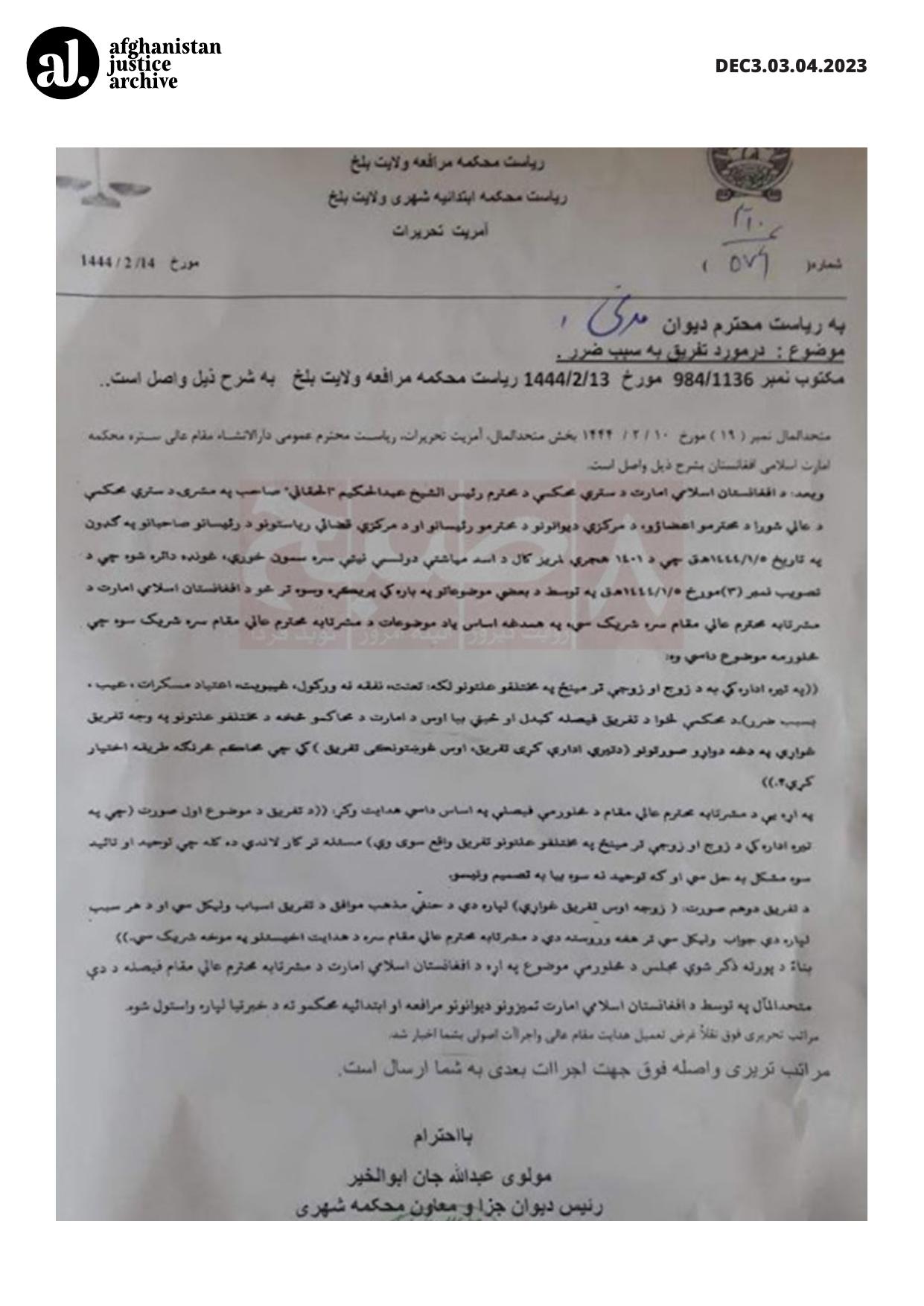Decree
Decree Translation
Date: 13/02/1444 To: The Honorable Central Court Directorate
Subject: Regarding Divorce Due to Harm
Letter No. 984/1136 dated 1444/2/13 from the BALKH Provincial Court of Appeals has been received with the following content:
A case file numbered (19) dated 1444/2/10 has been received from the Balkh Provincial Court of Appeals, along with related documents, and has been shared with the High Office of the Supreme Court of the Islamic Emirate of Afghanistan.
Summary of the Case:
The case concerns a request for divorce due to harm. The parties involved have previously experienced issues such as lack of mutual understanding, verbal abuse, addiction, and other harmful behaviors. The court has ruled in favor of divorce based on these grounds.
The High Council of the Islamic Emirate, under the leadership of Sheikh Abdul Hakim, has reviewed the matter. Based on the decision dated 1444/1/5, and after consultation with relevant departments, it was concluded that:
In cases where the administrative process has confirmed the presence of harm between husband and wife, and divorce has been granted accordingly, the matter is considered resolved unless new evidence or objections arise.
In cases where the wife is now requesting divorce, the matter should be reviewed under the Hanafi school of thought, and if valid reasons are found, the case should be processed accordingly.
This decision has been communicated to the relevant courts (Supreme, Appellate, and Primary) of the Islamic Emirate of Afghanistan for implementation.
With respect,
Mawlawi Abdullah Jan Abu Al-Khair
Deputy Chief of the City Court and Head of the Criminal Division
(The Taliban Supreme Court is reviewing the divorce judgments issued by the previous government's courts. According to a document from the Taliban Supreme Court obtained by 8 AM, Abdul Hakim Haqqani, the head of the Taliban Supreme Court, has ordered a reexamination of divorce cases from the previous government. This directive from Haqqani has been uniformly sent to all provincial courts. The document states that following this directive, divorce proceedings must strictly adhere to the Hanafi jurisprudence. According to the Hanafi school, divorce is based on the presumption of the husband's absence for a period of 70 years after his disappearance, at which point the wife may seek divorce.)
The Taliban Supreme Court, under the directive of Chief Justice Abdul Hakim Haqqani, ordered a reexamination of divorce judgments issued under the former government. The directive, now sent to all provincial courts, mandates that divorce cases be adjudicated strictly according to Hanafi jurisprudence, which includes a provision requiring a 70-year waiting period in cases where a husband is absent before a woman may seek divorce. This order threatens to invalidate thousands of divorce rulings, stripping women of legal protections and potentially forcing them back into abusive or unwanted marriages. It also undermines the already fragile legal status of women in Taliban-controlled Afghanistan and signals a broader rollback of family law rights previously afforded under the republic-era judiciary.
